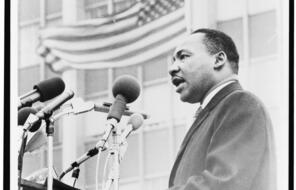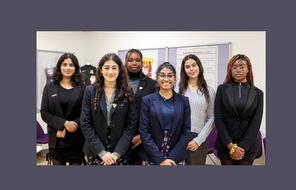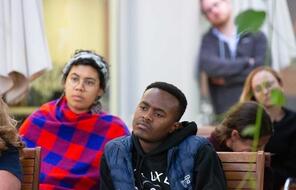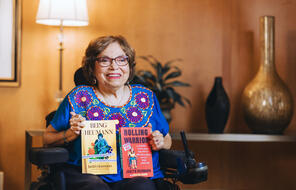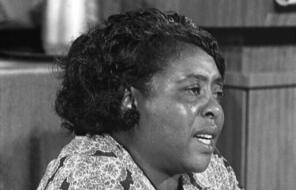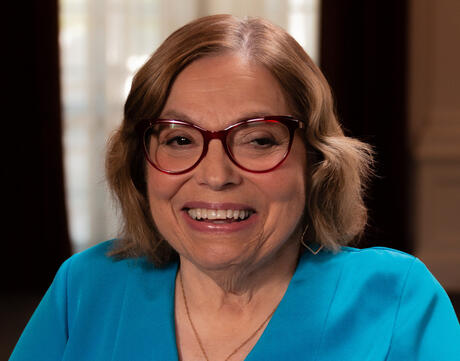
Remembering Judy Heumann and Honoring Her Legacy
Imagine you’re five-years-old and it’s finally time to join the ranks of children who go to kindergarten. Then suddenly this right of passage, this chance to equal education, is torn from you. Your attendance is barred by the public school’s administration who deem you a fire hazard simply because you are a wheelchair user.
Thus entered Judy Heumann into her first public battle for disability rights. Many people would be crushed by such a cruel introduction to society. But her parents fought for their daughter’s right to attend school, and eventually she was granted classroom access. The seed of activism was planted, and the rest is history.
Sadly, Judy Heumann passed away on Saturday, March 4 at the age of 75. NPR’s obituary offers a fond remembrance and recounts some key highlights of her extraordinary life. The last 55 years have seen revolutionary changes to disability rights in the United States, spearheaded by the unwavering advocacy of Judy Heumann. She was a champion of civil rights for all.
It was this very activism—her absolute embodiment of what it means to fight bigotry and hate—that led Facing History & Ourselves to choose her memoirs as our 2022-2023 All Community Read selections. The All Community Read brings together people from across our network to build shared understanding, create a shared experience, and open up conversations that connect to our mission and accomplishments.
Facing History highly recommends adding Being Heumann: An Unrepentant Memoir of a Disability Rights Activist, or the young adult version, Rolling Warrior: The Incredible, Sometimes Awkward, True Story of a Rebel Girl on Wheels Who Helped Spark a Revolution, to your reading list.
Judy’s passionate life, so beautifully captured in her memoirs, will continue to inspire the next generation of disability rights advocates.
Over the last few days we’ve been in conversation with educators, students, and Facing History staff who have shared the significance of getting to know Judy and her work. The stories and anecdotes they’ve shared illuminate how Judy’s advocacy has given them new perspective and encouraged them to stand up for change. Below, we’re sharing one of these powerful reflections, written by David Levy, Director of Facing History’s Partner Schools Network. David’s is just one story and cannot represent the enormous diversity of experiences and challenges people with disabilities face. But we lift up his words outlining his specific experiences, his introduction to Judy, and the ways her energy and determination sparked his own personal awakening to offer a glimpse into the impact Judy had.
I was deeply saddened to hear about Judy Heumann's death. A year ago I didn't know her name. I didn't know the details of her extraordinary life. I didn't know about her spirit, her humility, her fearlessness, and her deep sense of right and wrong and fairness. I didn't know about her intentional, strategic, and unyielding activism. I didn't know about her love of people and belief in allyship and solidarity. I didn't know she was the pioneer of the disability rights movement and that she was tireless in continuing that fight until the day she died.
My years at Facing History have taught me to ask several questions when I encounter a history that I am not familiar with: Why don't I know this history? Why wasn't I taught this history? But it has also taught me to look inward: Why didn't I seek this history out? Why did I not ask questions that would have led me to the history of the disability movement and to Judy Heumann's story?
I've had moderate to severe hearing loss in both of my ears since birth. For most of my life, I have assumed that it was my responsibility to compensate for my disability. On the first day of school of every grade, I went up to my teachers and explained about my hearing loss. I asked them to seat me in the front seat and talk louder to me. I did well enough in school and life that I didn't consider hearing aids until I became a teacher—I couldn't imagine teaching and not doing my best to hear my students. I considered it my responsibility to purchase those hearing aids, as I've done at fair expense for the last thirty years.
I rarely, if ever, thought that society or the organizations that employed me should help with my disability. I didn't think that it was equitable that society should do everything to truly include me and create situations for my successes. I'm ashamed to say that I didn't advocate for closed captions or those things that make huge differences to people with hearing loss or other disabilities.
Reading Judy’s memoirs, watching her in webinars, and listening to her podcasts over the last year has changed the way I think about myself, my disability, and my advocacy. For the last two decades my thoughtful colleagues at Facing History have supported me and enabled me to feel that I can confidently facilitate. This includes the provision of office spaces which help me work at my highest level.
And yet, I was a little too quiet, a little too nice about asking for the things I truly needed and deserved to succeed. Learning Judy's story really pushed me. Over the last eight months I've reframed how I think of myself as disabled. I'm louder and more direct about asking for accommodations. Judy always talked about how the fight for disability rights and the ensuing changes benefited everyone, not just the disabled. This past fall I had a big workshop coming up and my hearing aids broke. I asked for, and Facing History supplied, a microphone and speaker set up that allows for each participant to have use of the microphone so that I can confidently hear them. I don't think anyone should have to pay for hearing aids; I'll work harder at that.
Learning about Judy's life—hearing her calm, unyielding, inspirational, and hopeful voice—has changed me. I thought her story was remarkable the first time I read it. I loved it even more because she was a teacher in a New York City classroom, and then a teacher in every other realm of her life. Thanks for being my teacher, Judy. Rest in power.


